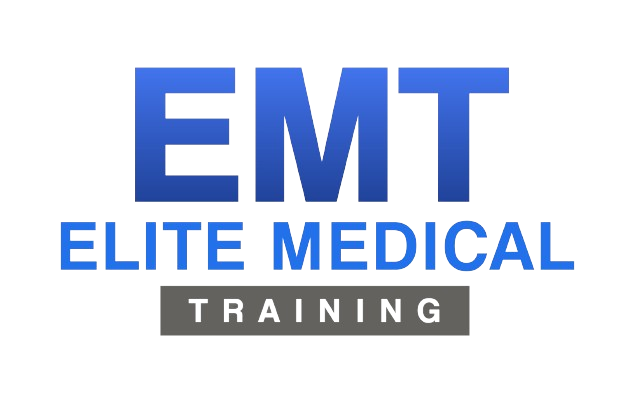In the precious moments after birth, ensuring the well-being of a newborn is of utmost importance. The Neonatal Resuscitation Program (NRP) plays a vital role in equipping healthcare professionals with the knowledge and skills necessary to provide life-saving interventions during this critical period. This comprehensive program has become an invaluable asset in improving neonatal outcomes and reducing mortality rates worldwide.
What is the Neonatal Resuscitation Program (NRP)?
The NRP is an educational program developed by the American Academy of Pediatrics (AAP) and the American Heart Association (AHA). It provides evidence-based guidelines and standardized training for healthcare professionals involved in the care of newborns. The program focuses on the initial steps of resuscitation, including assessment, airway management, breathing assistance, and cardiovascular support.
Why is the NRP Important?
The birth process can be unpredictable, and complications may arise that require prompt and skilled intervention. Approximately 10% of newborns require some level of resuscitation at birth, and the Neonatal Resuscitation Program equips healthcare teams with the knowledge and skills to effectively respond to these situations. Proper resuscitation techniques can significantly reduce the risk of long-term complications or even prevent neonatal mortality.
Importance for Global Neonatal Health
The NRP has had a profound impact on neonatal health outcomes globally. In many low-resource settings, access to skilled birth attendants and resuscitation training has been limited. The NRP has been instrumental in providing standardized training and guidelines to healthcare providers in these areas, helping to reduce neonatal mortality rates. Organizations like the American Academy of Pediatrics and the World Health Organization have worked to expand NRP training initiatives worldwide.
NRP Training
The NRP offers various training options to accommodate different learning styles and schedules. These include:
- Instructor-led courses: Hands-on training sessions conducted by certified Neonatal Resuscitation Program instructors, allowing for interactive learning and skill practice.
- Online courses: Self-paced online modules that cover theoretical concepts and knowledge assessment.
- Simulation-based training: Realistic scenarios using high-fidelity simulators to practice resuscitation techniques and enhance teamwork.
Regular NRP training and certification renewal are essential to ensure that healthcare professionals remain up-to-date with the latest guidelines and maintain their resuscitation skills.
While the primary goal of the Neonatal Resuscitation Program is to save lives, it also addresses important ethical considerations. Healthcare providers must be prepared to navigate complex scenarios, such as resuscitation decisions for premature infants or those with severe congenital anomalies. The NRP provides guidance on involving families in decision-making processes and respecting cultural beliefs while prioritizing the well-being of the newborn.
Who Needs NRP Training?
The Neonatal Resuscitation Program is designed for a wide range of healthcare professionals involved in the delivery and care of newborns, including:
- Obstetricians
- Pediatricians
- Neonatal Nurses
- Midwives
- Respiratory Therapists
- Neonatal Nurse Practitioners
- Neonatal Intensive Care Unit (NICU) staff
Simulation and Skills Practice
A key component of Neonatal Resuscitation Program training is hands-on simulation and skills practice. Realistic simulation scenarios allow healthcare professionals to apply their knowledge in a safe, controlled environment before encountering real-life situations. This experiential learning approach has been shown to improve confidence, decision-making, and teamwork during actual neonatal resuscitations.
By ensuring that all members of the neonatal care team receive standardized NRP training, it promotes a coordinated and effective approach to resuscitation, fostering better communication and teamwork during critical situations.
Jobs Related to the NRP
The NRP has a significant impact on various healthcare roles and specialties, including:
- Neonatal Nurse Practitioners: These advanced practice nurses play a crucial role in neonatal resuscitation and provide leadership in the NICU.
- Neonatal Nurses: Nurses trained in the Neonatal Resuscitation Program are essential members of the resuscitation team, providing hands-on care and support.
- Neonatal Respiratory Therapists: Respiratory therapists are vital in assisting with airway management and ventilation during resuscitation efforts.
- Neonatal Intensive Care Unit (NICU) staff: All members of the NICU team, including physicians, nurses, and support staff, must be proficient in NRP to ensure seamless care for critically ill newborns.
Takeaways
The Neonatal Resuscitation Program is a testament to the dedication and commitment of healthcare professionals in providing the best possible care for newborns. By equipping teams with standardized knowledge and skills, the NRP plays a crucial role in saving lives and improving neonatal outcomes. As medical advancements continue, the Neonatal Resuscitation Program will undoubtedly evolve to incorporate new research and technologies, further strengthening its impact on the well-being of newborns worldwide.

